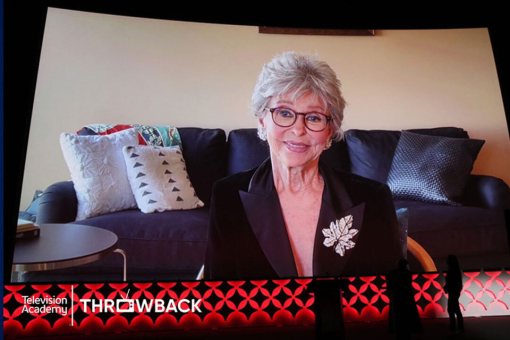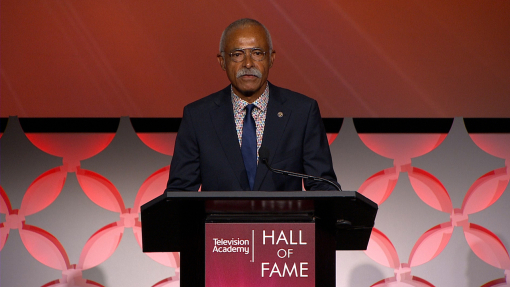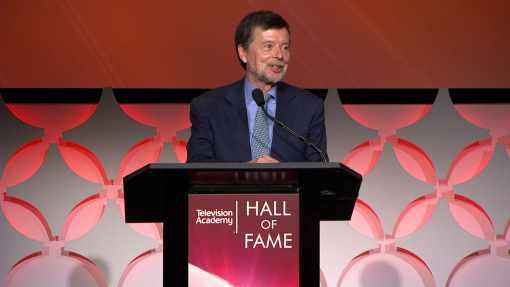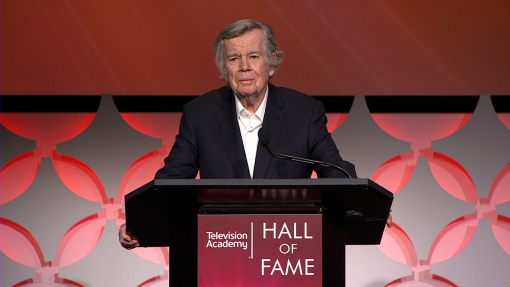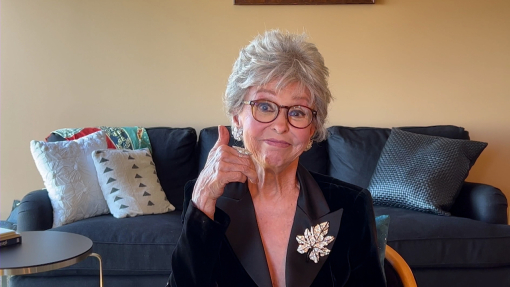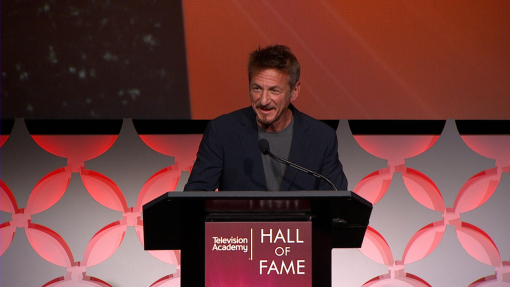"This is not to say I was a saint during the Texaco days. I was rough, and I have lots of regrets about things I did and said, for the way I pushed and shoved and bullied during those hysterical years. My only defense, which is no defense, is the pressure I worked under and the person I was raised to be. You take a kid at the age of five and make him the star of the family, and then take that same kid out into the world and make him a star with everybody catering to him as if he were something more than another perishable human being, and it's a miracle if that kid doesn't grow up to be a man who believes he's Casanova and Einstein and Jesus Christ all rolled into one." — Milton Berle
Milton Berle was television's happy beginning, the medium's first clown, and its first star. Uninhibited, brash, impertinent, and above all visual, he became Mr. Television, the man who opened the door and ushered America into a new age of entertainment.
But the happy beginning he created for television was also the happy ending he enjoyed after a long search for wide public acceptance as an entertainer. When he found television at age 40, he became, as he once put it, "a 35-year overnight sensation.”
Mendel Berlinger was born in Harlem on July 12, 1908, when Harlem was Jewish, German, and Italian. "It wasn't Sutton Place, but it wasn't bad," he has said. As a young boy, he was already preparing for the costumes that would make him famous. One day, with a piece of fur for a moustache, he dressed in one of his father's suits, walked into the streets, and began imitating Charlie Chaplin. His antics caught the attention of a theater owner, who followed him home and told his mother about the theater's upcoming Charlie Chaplin contest. A few days later, he entered the contest and won it. His career in show business was launched; he was five years old.
His mother, Sara Berlinger, started taking him to modeling agencies. Through the gossip network, she heard that Pathe studios was looking for a little boy to play a role in Pearl White's The Perils of Pauline, then being filmed in Fort Lee, New Jersey. Boarding a ferry at 125th Street, Mrs. Berlinger took her son to Fort Lee and presented him to the movie's director. Little Miltie got the part. Other roles followed: Tess of the Storm Country, with Mary Pickford; Divorce Coupons, with Corinne Griffith; Ruth of the Range, with Ruth Boland.
By the time he was 13, he was a vaudeville veteran — singing, dancing, and clowning in two shows a day across a circuit that took him to Minneapolis, Winnipeg, Calgary, Vancouver, San Francisco, Los Angeles, Denver, Omaha, Chicago, and home again to New York.
He gradually enlarged his routines to include more comedy and went to Broadway with a revival of Florodora in 1920. Over the succeeding years, he took on nightclub work, performed on radio, and returned to Broadway, vaudeville, and the movies, appearing in New Faces of 1937, Gentle at Heart (1942), and Margin of Error (1943). The results, however, were always the same: only modest success, only lukewarm acceptance.
In early 1948, he started hosting the ABC radio variety show Texaco Star Theater. The sponsor liked his work and asked him to serve as one of the rotating hosts on its upcoming one-hour television version of the show on NBC. Berle hosted the television premiere on June 8, 1948. During the summer, he alternated with comedians Jack Carter, Morey Amsterdam, Georgie Price, and others. In September, however, Berle was made the program's permanent emcee and gave up Texaco's radio show.
He had arrived at the new medium at the right time. Network television had begun two years earlier, shakily, with largely experimental fare. Television sets were still a novelty and still an indulgence of the affluent. Aside from the 1947 World Series telecast, seen mostly in neighborhood bars, television had not reached a mass audience. But the World Series telecast did cause an increase in television purchases, and by the following year programming schedules had been enlarged to include Ted Mack's Original Amateur Hour and Ed Sullivan's Toast of the Town, shows that subsequently became hits. The year 1948, then, marked a turning point in the medium's history. Audiences were beginning to grow, and Milton Berle was there to greet them.
To a large extent, the early Texaco Star Theater shows represented a return to vaudeville for Berle. This time it was to an electronic vaudeville complete with singers, comics, elephants, dancers, acrobats, and ventriloquists. Each show would open with the four Texaco "mechanics" singing, "Oh, we're the men of Texaco / We work from Maine to Mexico … ” Berle would then make his entrance, wearing some outrageous costume: a bridal dress, a caveman wrap, a Cinderella gown. One week he’d show up as an Eskimo on a dogsled, the next week, as a pilgrim. Then, shedding the outfit, he usually would involve himself with his guests, cavorting with them, singing, dancing, splashing his broad, noisy comedy across the studio stage and onto the home screen.
Early television's limitations required certain adjustments that ultimately may have aided his success. "Since there were no monitors on which the [studio] audience could watch the show," he recalled in his autobiography, "they [audience members] had to do as well as they could by looking around the cameras, which blocked their view of the stage. I learned quickly that I couldn't do anything small, because the studio audience couldn’t see it, and if the studio audience didn't laugh, chances were the home audience wouldn't, either."
So he did it up big, the studio audiences laughed, and the home audience not only laughed, but returned week after week for more laughter, transforming Berle into a Tuesday-night national event. His show demonstrated the almost fanatic loyalty that the fledgling medium could elicit from a mass audience. Much of the nation simply stopped doing business to watch the Berle show. Restaurants across the country remained empty on Tuesday evenings. Nightclubs closed on Tuesday. An Ohio theater manager posted a notice in his lobby: "Closed Tuesday. I want to see Berle, too.” Berle’s program, moreover, was the only show not canceled during the Truman-Dewey election returns on Tuesday, November 2, 1948.
Berle's extraordinary popularity, which garnered him the sobriquet "Mr. Television," hastened the new medium's acceptance throughout the country and spurred the sale of television sets to a wider audience. His popularity was also the harbinger of bad news for business at the movie box office: In the early 1950s, television's wide acceptance threw the movies into economic panic, causing the studios to regroup by diversifying and by shifting in part to television production.
In 1949, Mr. Television acquired another nickname. At the start of that season, the show ran seven minutes short, causing the backstage floor man to panic. He held up seven fingers, so Berle began to ad-lib frantically. He pulled out every joke he could remember, but the show was still running short. Finally, he recalled hearing that children often refused to go to bed when his show aired. So he began talking to them, urging them to go to sleep immediately after the show. "Listen to your Uncle Miltie," he said. Then he closed the show. "Uncle Miltie" soon became his trademark.
When the Texaco show entered the early 1950s, it was still consistently among the top shows. NBC was so pleased that it signed Berle to a 30-year contract, which provided that he would be paid $200,000 a year through August 31, 1981, for exclusive use of his television services. But the show’s ratings began to falter, which prompted Texaco to change its sponsorship to other programs after 1953. The Tuesday hour soon became The Buick-Berle Show. Later, from 1954 to 1955, the program was called The Milton Berle Show. The comedian's long-distance run in television ended that season with low ratings.
Berle returned to NBC for the 1958-59 season hosting the weekly half-hour variety series The Kraft Music Hall. After that season, he made numerous guest appearances on television; his starring role in the 1962 critically acclaimed drama Doyle Against the House won him an Emmy nomination. After Doyle, Berle went on to perform in such movies as It's a Mad, Mad, Mad, Mad World (1963), The Loved One (1965), The Oscar (1966), and The Happening (1967), among others. In 1968, he returned briefly to Broadway to perform in Herb Gardner's The Goodbye People, and in 1982 he emerged once again as a television dramatic actor in Family Business on PBS. His autobiography, Milton Berle, was published in 1974.
This tribute originally appeared in the Television Academy Hall of Fame program celebrating Milton Berle’s induction in 1984.

